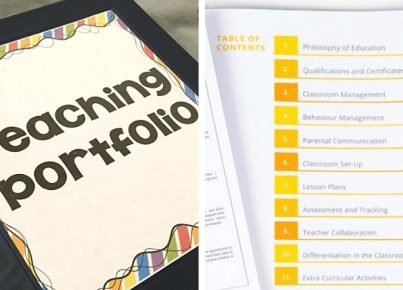Summer is the ideal time for educators to recharge, relax, and reflect on their practice. However, the best teachers are always looking for opportunities to grow and learn more. With that in mind, here are eight unconventional activities that can be considered summer professional development.
1. Reading for Fun
Instead of sticking to the usual education-related books, broaden your horizons by reading a book outside your comfort zone or genre this summer. Getting engrossed in a good novel or diving into an interesting biography might help you discover new insights that could enrich your teaching style.
2. Attending Cultural Events
Exploring different cultures at local fairs and festivals can help teachers deepen their understanding of diversity and increase cultural sensitivity in the classroom. Such events often offer opportunities for interaction with people from various backgrounds.
3. Mastering a New Skill or Hobby
Challenge yourself by learning a new skill or picking up a new hobby during the break. Whether it’s playing an instrument, gardening, or painting, mastering a new skill can teach you valuable lessons about patience, perseverance, and creativity – all important aspects of being an effective educator.
4. Engaging in Volunteer Opportunities
Offering your time and skills to help others is not only personally rewarding but also professionally enriching. Volunteering at local non-profit organizations or participating in community projects can provide valuable experience and help develop your empathy and leadership skills.
5. Participating in Online Discussions or Social Media Groups
Join social media groups or online forums where educators worldwide share ideas, resources, and experiences related to education practices. Participate actively by engaging in discussions, asking questions, and sharing knowledge to cultivate an environment conducive to professional growth.
6. Visiting Local Museums and Attractions
Spend some time visiting local museums, historical sites, art galleries, science centers, or even zoos this summer. These attractions can provide a wealth of content and inspiration for lesson planning, as well as opportunities to explore learning from a different perspective.
7. Watching Educational Movies or Documentaries
Enjoy your downtime by watching educational movies or documentaries related to your subject area or the field of education in general. As you watch, think about how you might be able to incorporate elements from the content into your lessons for student engagement and enrichment.
8. Journaling and Reflecting on Teaching Experiences
Take some time to write down and reflect on memorable teaching moments and experiences from the past academic year. Consider what worked well, what didn’t, and how you can improve upon it in the future. This reflective practice helps foster self-awareness and continual growth as an educator.
In conclusion, summer professional development doesn’t have to be limited to attending traditional workshops or conferences. Embracing new experiences, developing skills outside of the classroom, and learning from fellow educators can all contribute to your growth as a teacher and enrich your teaching practice.


